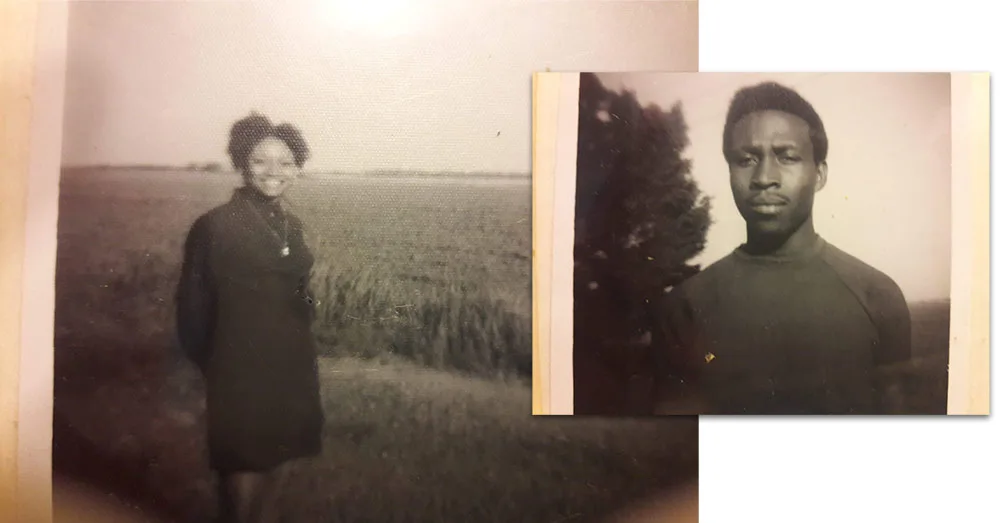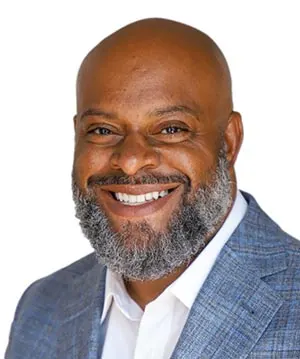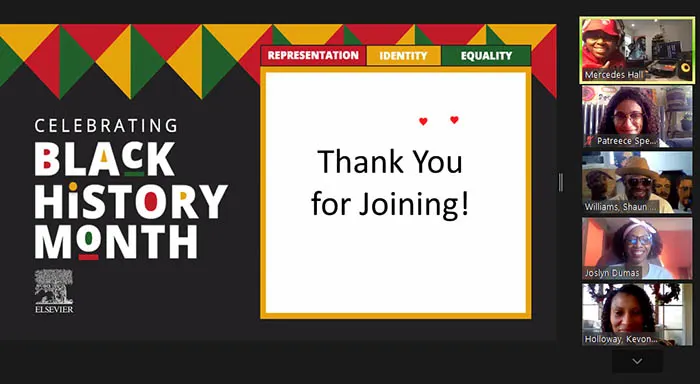What Black History Month means to me
February 9, 2022

“I am the daughter of sharecroppers. … I’m determined to make good on those sacrifices,” says Joslyn Dumas, a leader of Elsevier’s African Ancestry Network
Joslyn Dumas shares her passion for Black history as President of the St Louis Chapter of Elsevier’s African Ancestry Network.
We need talented people to help us inspire groundbreaking research.
I am the daughter of sharecroppers. Both my mother and my father picked cotton along with their families for most of their childhoods. From the time they were 7, they were responsible for contributing to the family by picking a certain amount of cotton every day. Their families were large, and my mother was also tasked with caring for her younger siblings.
Despite all their hard work and long hours, many times they weren’t sure where their next meal was coming from.

Joslyn Dumas’s parents in 1967. As children, they were sharecroppers in Arkansas.
While this was a heavy burden to carry as a child, it strengthened my parents’ resolve. They wanted to make sure their children could be children and that we would have opportunities they didn’t. My mother worked hard and graduated a year early from high school so she and my father could get married and begin their lives. Both my parents graduated valedictorian of their classes.
The drive and work ethic inspire me every day. Knowing how hard they had to work to get where they are makes me determined to make good on those sacrifices.
For me, Black History Month(opens in new tab/window) is a time to celebrate the achievements of Black people — to celebrate our long history, our contributions to society, and our ability to thrive despite negative circumstances. In the United States, our history is rich and varied, and I learn something new every year that makes me even more proud. When I think of Black History Month, I think of joy, vulnerability, resilience, intelligence and love.
As my colleague Shaun Williams(opens in new tab/window), Director of Health Education Online Customer Support at Elsevier, expressed so eloquently:
For me it means to recognize our ancestor’s trials, tribulations and accomplishments in order to appreciate the richness of our culture. These experiences are what shape our destiny by providing record or guidance for a better tomorrow.

Shaun Williams
The value of education
Education was so important to my parents, and they made sure my siblings and I had access to quality education. I am the first person in my family to graduate from college, which was a huge accomplishment. I had 20 family members attend the graduation and even more come to my party. It was truly a celebration of how far our family has come.
The desire to make my family proud shows up in everything I do — most importantly in how I am raising my daughter.
I want her to know the caliber of people she comes from — the sacrifices they made so she could have the life she has. I encourage her to work hard and appreciate everything she has. I never want her to take anything for granted because just two generations ago it wasn’t even possible. She is the realization of all the hopes and dreams my parents had, all the things they wished they could have done. Their sacrifices made our successes possible, and I am forever grateful to them for that.
My daughter is an excellent student with a strong interest in science. She attends a STEAM high school (science, technology, engineering, arts and mathematics), where she is further developing her skills in science. Her dream is to be a labor and delivery nurse. My dream is for her to be passionate about what she does and truly enjoy her work.
Celebrating Black History Month with our allies at Elsevier

Employees in the US played Black History Music Trivia at one of AAN’s Black History Month events last year.
Black history is everyone’s history and can be celebrated by everyone. Allies are important for success and progress.
At Elsevier, I share my passion for Black history as President of the St Louis Chapter of Elsevier’s African Ancestry Network (AAN). We also have chapters in Philadelphia, New York and Washington, DC. We meet virtually, and before the pandemic, we also organized in-person events in our offices.
The AAN is a voluntary group of employees from Elsevier and our parent company, RELX(opens in new tab/window). It embraces our company’s inclusion and diversity initiatives, aimed at increasing the representation, development, promotion and retention of people of color.
For me, AAN is also a community where I can let my guard down a bit. Growing up, I was one of the only African American people in school, and then in college and at work. So it’s great having that group of people where you can be yourself; you don't have to always be on your 100% best behavior because you are like the representative of your people in that space.
For Black History Month, we’ve planned a variety of virtual activities that are both fun and educational. They include Black History “Jeopardy”; Soulful Healing Music Trivia; and expert-led sessions on health and wellness, empowerment at work, and the effects of racism on mental health.
What does Black History Month mean to you?
We invite you to share your thoughts and experiences in the comments.